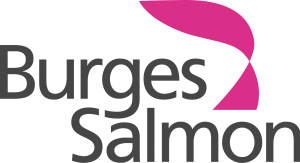The opportunities and challenges of using AI and data science in professional services and their likely impact on productivity and the future of work are to be jointly explored by Bristol-headquartered national law firm Burges Salmon and the University of Bristol.
The two have signed a memorandum of understanding to share academic and professional insights into what the law firm of the future will look like and how fast-paced changes in this area can translate into benefits today’s clients. 
Burges Salmon, which employs around 750 people in its Bristol headquarters and London office and this month opens a base in Edinburgh, will collaborate with the university’s Faculties of Engineering and Social Sciences and Law to gain a better understand of the professional and societal challenges of digital technologies, plus the opportunities they can offer.
Burges Salmon managing partner Roger Bull said: “Putting advanced technologies at the heart of service delivery is a key part of our business strategy. We are keen to take an informed, research-based approach to how we successfully adopt these new technologies.
“The University of Bristol is one of the most successful universities in the UK and internationally recognised for excellence in research.
“So this collaboration is about us being at the forefront of new thinking in professional services and actually delivering visible benefits to our clients.”
Head of the School of Management, Prof Jonathan Beaverstock, added: “It is essential that academia and organisations work together to crack the productivity puzzle. The School of Management relishes the opportunity to draw on its world-leading research and scholarship in the fields of professional services, the future of work and ‘big data’ to establish meaningful connections with Burges Salmon. 
There is huge potential for social sciences research to bring innovation to companies and thus to contribute to economic growth.”
Burges Salmon’s multi-disciplinary business solutions team, which includes technologists and innovation and change specialists that work closely with lawyers, is led by Rachel Roberts, pictured, who said: “We have seen an influx of new technologies in the legal sector over the past couple of years and it could be tempting simply to buy the latest thing.
“However, we have developed a far more comprehensive strategy that includes building strategic relationships, like this one with the University of Bristol.”
She said a long-term strategy that invested in thought leadership, client and employee engagement and building new skills and capabilities was required for professional service firms to realise the benefits for their people and clients that the newer technologies offer.
“We are addressing questions around how technology can augment and support the traditional roles of the lawyer and other professionals and how we can best meet the changing needs of clients,” she said. “Our collaboration with the University of Bristol will be invaluable as a contribution to this.”
New technologies relevant to law firms include using machine learning to predict case outcomes, smart contracts that run using code and blockchain to provide secure authentication and payment by cryptocurrencies.
But Rachel Roberts said the reality was “a far cry from the hype” with many legal processes still operating in analogue rather than digital.
The with the university, among others, was designed to help the firm be forward thinking and in a better position to successfully adapt to change.
Burges Salmon’s inaugural B-Innovative week in January showcased demos and talks to encourage curiosity and innovation, including a session by Dr Harry Pitts, from the University’s School of Management, that looked at the challenges of innovation in professional services.
University of Bristol pro vice-chancellor for research and enterprise, Prof Nishan Canagarajah, added: “We are delighted to develop this exciting and multi-disciplinary relationship with Burges Salmon.
“This relationship will span different disciplines, research and teaching, and will provide valuable opportunities to address and tackle some of the major issues that we see arising in many workplaces as the promise of ‘digital’ becomes a global reality.”
He said the partnership would contribute towards fulfilling the university’s vision to develop a world-class centre for research, enterprise and innovation at its new £300m Temple Quarter Enterprise Campus, due to open in 2021.





























